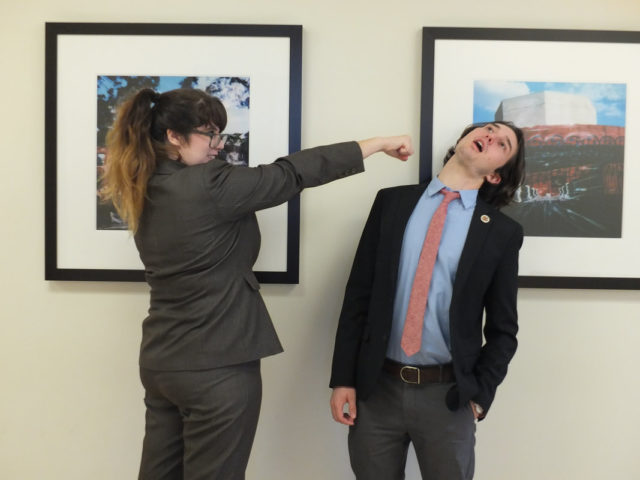By Savannah Cooper | Staff Writer
Baylor gained a student-run organization in 1997 that practices and develops international diplomatic skills through competitions each semester. From Nov. 9 to 11, Baylor’s Model Organization of American States travelled to Texas State University in San Marcos for an academic debate regarding Western Hemisphere affairs.
Baylor sent two teams representing the countries of Belize and Peru that presented issues facing those nations, along with resolutions to resolve them. This past conference marked twenty one years of the competition.
Lees Summit, Miss., senior Brendan Smith, head delegate for the Belize team said he enjoyed being in this program because it expanded his viewpoints.
“Being involved in this program has broaden my interests, I’m a German major and everything I’ve done with Political Science has been European focused and the politics of the Western Hemisphere,” Smith said. “I think it’s something that has opened my eyes to lesser considered areas of the world that people don’t think about as much even though it’s in our backyard. I’m grateful that it’s given me the opportunity to just consider other regions that I hadn’t known anything about before joining this program.”
The theme of this year’s conference was “Celebrating the Cultural Mosaic of the Americas,” and the keynote speaker of the event was Ambassador Oliver del Cid, Belizean Ambassador to Mexico.
Director of MOAS and the Lynn Professor of History Dr. Joan Supplee has been an advisor to the organization since its inception and said she saw firsthand the dedication of the students.
“The reason that we did so well this year was because these kids are really dedicated and well trained with model experience,” Supplee said. “The standards of the conference have gotten much tighter, the academic standards, required to write position papers and resolution papers that are submitted to judges, but these students were prepared.”
Starting a few years ago, MOAS became not only an organization, but a year long class with fall and spring sections. Smith said he appreciates the unique class structure.
“Class structure is very much more a matter of experience compared to a traditional lecture or seminar type class,” Smith said. “It’s often very much a student run endeavour, I think Dr. Supplee is very hands off in a lot of ways and just trust us, who have been doing it for several years, to know what needs to get done and help people get into it.”



